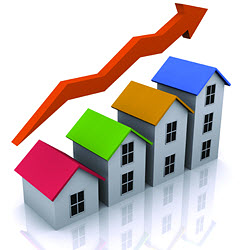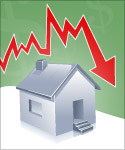 US home rental prices continued to climb at a modest pace in December, but rapidly escalating costs in cities such as San Francisco and Denver suggest that renters are facing more financial pressure.
US home rental prices continued to climb at a modest pace in December, but rapidly escalating costs in cities such as San Francisco and Denver suggest that renters are facing more financial pressure.
Prices rose 3.3% in December compared with 1 year ago, according to real estate data from Zillow.
Although the rise is less than recent appreciation in home values, the surge in rental rates in several of the hottest markets indicates renters who aspire to buy homes face mounting financial challenges.
The share of Americans who own their homes has slipped to 64.4% from a peak of 69.2% in 2004, the result of the housing market crash that triggered the “Great Recession” in late 2007 from which the US economy is still recovering from more than seven years later.
Because fewer Americans can afford to buy a home, demand for apartments and rental houses have pushed up prices at a time when newly graduated millennials are starting to leave their parents' homes. “We do not have the affordable rental housing resources to meet the demand”, said Barry Zigas, director of housing policy at the Consumer Federation of America, at an industry conference last week.
Rental prices have risen 52% since 2000, while incomes for renters have only increased 25%, said Stan Humphries, chief economist at Zillow. The higher costs make it difficult for renters to save for a down payment, which then causes them to rent for a longer period of time and delay any potential home purchases.
“You don't have to be a housing economist to see that there is a problem there,” Humphries said. Additional construction has yet to significantly limit price growth nationwide. Builders broke ground on 376,000 apartment complexes last year, a 10.2% increase from 2013, the Commerce Department reported Wednesday. By contrast, single-family house construction rose just 1.4% last year. Rents jumped 15.4% in the San Francisco area to a median monthly cost of $3,031, an increase mirrored by San Jose where prices were up 14.5% to $3,187 a month. Rents climbed 10.5% in Denver to $1,817 a month. Kansas City also notched a substantial 8.5% gain to $1,204 a month.
Still, tenants are catching a break elsewhere. In Chicago, Minneapolis, Philadelphia, Baltimore and Washington, DC, rents rose by less than 2.2%. Rents in Minnesota's Twin Cities area ticked up a mere 0.1% this past year to $1,501.
Increasing rental rates coupled with increasing rental demand nationwide puts real estate investors in a very favorable situation to capitalize on these conditions. Opportunities cycle and the timing is great. This is yet another factor to take action and invest now.



